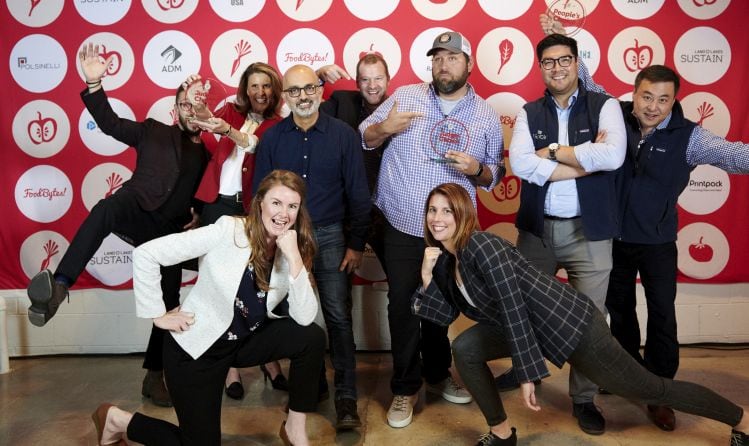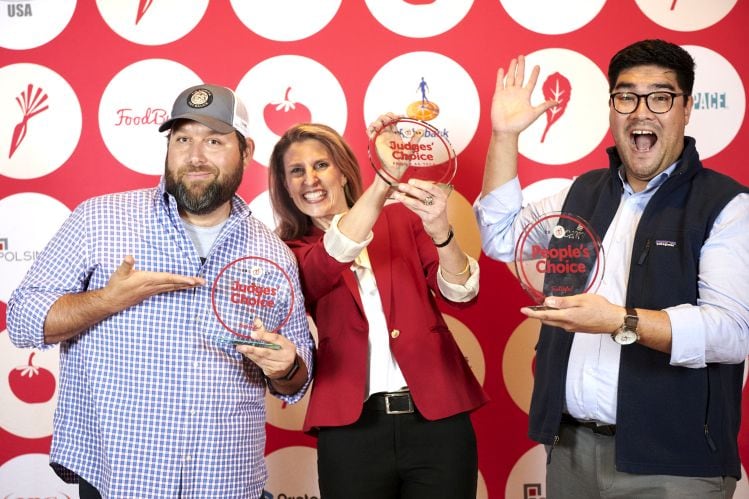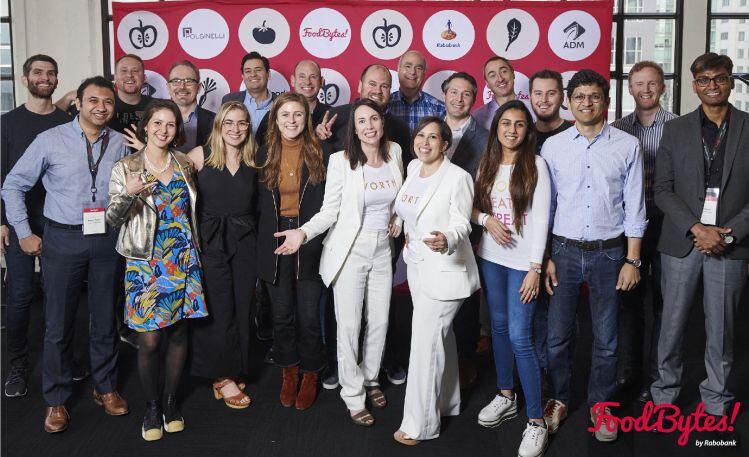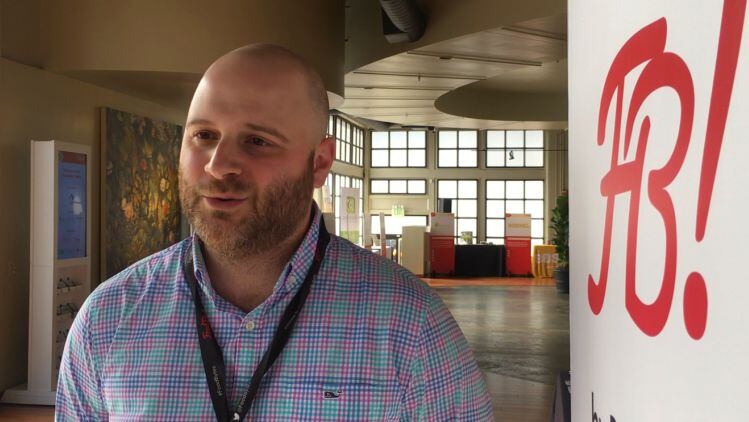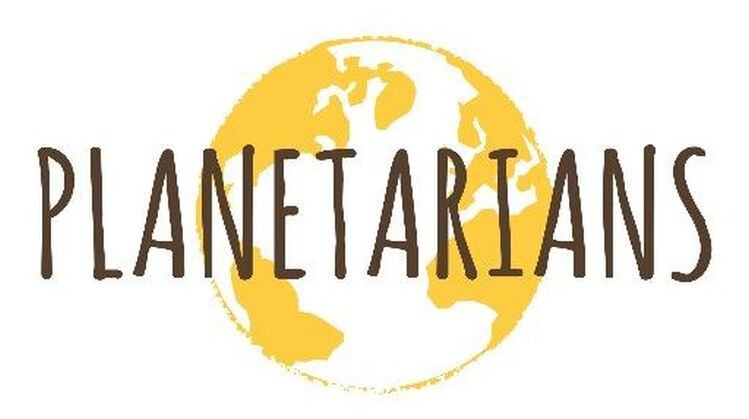The three winners were among 15 startups who each had three minutes to pitch on stage before a panel of judges on Thursday after a day and a half of meetings with industry experts helping them to hone their pitches, gain direct feedback on their products and technologies, and network with investors and corporate leaders.
Consumer Packaged Goods award: Tia Lupita Foods
Hector Saldivar, founder of San Francisco-based healthy Mexican food brand Tia Lupita Foods, wowed the judges with his hot sauces, tortillas and tortilla chips (Totopos) inspired by recipes from his mother (known as Tia Lupita or 'Aunt Lupita' in Spanish).
Made with nopales (a drought resistant cactus popular in Mexican cuisine), the gluten-free tortillas also contain cassava flour, white corn masa, sea salt, and water, and are significantly lower in calories than regular tortillas, he said. "I want to introduce Nopales to the US market in an approachable way as an ingredient [in foods that Americans already eat, such as tortillas and chips]."
The products meet consumer demand for "clean ingredients, innovative products, and authentic family recipes," said Saldivar: "We only use ingredients that my Mom would find in her pantry back home. There is a huge white space... Retailers like Whole Foods see the potential of having options like these for their shoppers.
"We are a trend and the market is coming to us."
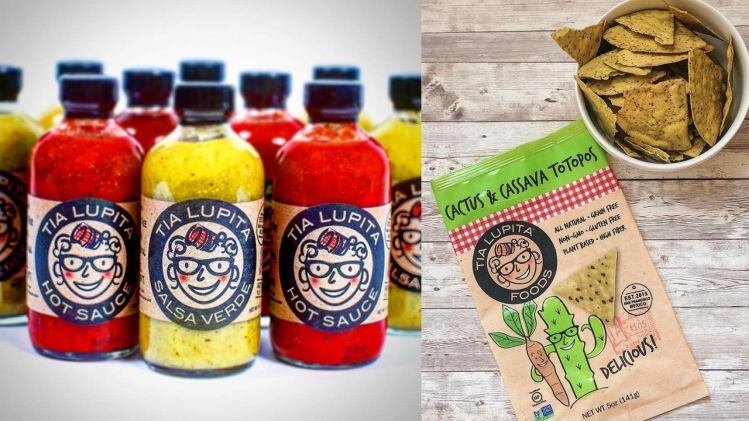
Food and Agriculture Technology award: LocalCoho
LocalCoho raises 'sushi-grade' Coho salmon - known for its reddish-orange meat - in fresh water in land-based 'RAS' (Recirculating aquaculture systems) facilities near major cities to bring consumers the "freshest, healthiest, most sustainable local fish available."
"Salmon is the most consumed fish in the US, but the industry is fraught with issues," claimed LocalCoho consultant and investor Daphne Mazarakis, citing antibiotic use, food miles (most salmon consumed in the US is imported from open ocean farms) and over-fishing of wild salmon.
"The good news is, the blue revolution is here and even the largest mass market buyers are demanding change. Our solution is to grow Coho salmon using MxCell [Mixed-Cell Raceway] technology [which combines the best characteristics of circular tanks and linear raceways in a single production system], the most efficient technical design because it uses long shallow tanks and gravity to keep the energy costs the lowest on the market.
"Because our systems are fully controlled and super clean, we have no escapes, antibiotics or chemicals. We re-use 95% of our water, and we have low carbon miles because we are fresh, next-day local. What protects us from me-too competitors is that the original Cornell designers of MxCell are on our team and our proprietary implementation makes it difficult if not impossible to replicate."
The first small-scale facility is in upstate New York with a second, much larger, facility to operate in Chicago.
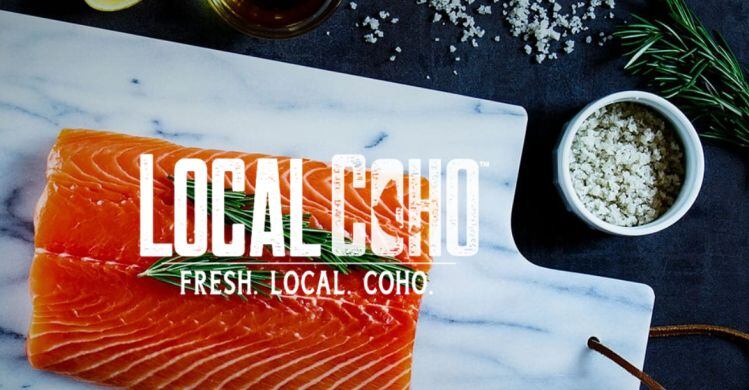
People’s Choice award (voted by the audience across both categories): Capro-X
For every pound of milk used in traditional Greek yogurt manufacturing processes - where the whey is ‘strained’ (or centrifuged) off - only one-third ends up in the final product.
The remaining liquid - which contains protein, lactose and milk minerals - is often referred to as ‘acid’ whey, which, unlike the ‘sweet’ whey generated in cheese production, is not suitable for use in processed foods, and has created headaches for many manufacturers as it is too acidic to be handled by their on-site waste water treatment facilities, said Capro-X founder and CEO Juan Guzman.
"Acid whey can't just get poured down the drain, so we're looking at a million gallons of waste that has to be treated every single day."
Capro-X - a spin-off from Cornell University - uses microbes to convert the organic compounds in acid whey via a fermentation process into high-value flavor and fragrance ingredients such as caproic acid and caprylic acid, which are currently sourced from unsustainable sources such as palm oil.
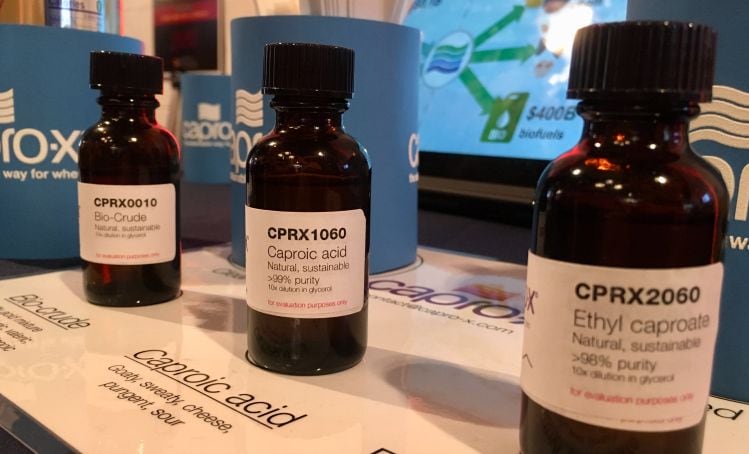
FoodBytes!
Following the event, the entire group will receive ongoing opportunities for networking and mentorship as part of the FoodBytes! alumni community.
The judges were primarily looking for excellence across these criteria:
- Management team: Exceptional domain and entrepreneurial experience.
- Business model: Companies with a clear understanding of their costs and margin structures, competitors, and ability to scale.
- Market opportunity: High growth market opportunities and high barriers to entry.
- Product innovation: Game-changing approaches to solving problems.
- Production validation and traction: Evidence companies are building a successful business and are able to raise external funds.
- Sustainability and social impact: Concept is focused on the triple bottom line: people, profit and planet.
FoodBytes! Chicago was supported by presenting sponsor ADM along with official sponsors Printpack, Polsinelli, Land O’Lakes SUSTAIN, FoodSpace and JBS USA, as well as supporting sponsors Agropur Cooperative, Germin8 Ventures, Creative Alignments, TIG, Boulder Food Group, DLL and The Food Foundry.
Watch all the pitches from FoodBytes! Chicago on the Facebook Live Stream and checkout FoodNavigator-USA next week for coverage of the event and interviews with the judges and startups.
The 15 shortlisted startups were:
Consumer Packaged Goods:
- Yolélé Foods (Brooklyn, NY) is building a commercial scale supply chain for fonio, a West African ancient grain that cooks like couscous with a nutritional profile similar to quinoa.
- Start Right Foods (Ballwin, MO) makes high protein breakfast waffles.
- TeaSquares (Chicago, IL) produces superfood snacks such as tea-infused energy bites.
- Tia Lupita Foods (Tiburon, CA) makes healthy Mexican-inspired food products including hot sauce, cactus chips and tortillas.
- Shameless Pets (Chicago, IL) makes upcycled treats designed reduce the environmental impact of pet food production.
Food Tech:
- The Better Meat Co (Sacramento, CA) is targeting CPG firms and institutional food sellers with plant-based proteins that “blend seamlessly into ground meat products” at inclusion rates of up to 50%, to deliver healthier, tastier, and more sustainable sausages, burgers, and meatballs.
- Evigence Sensors (US and Israel) develops visual freshness sensors that help reduce food waste and enhance food safety and quality.
- Higher Steaks (London, UK) is developing cell-cultured meat products.
- Journey Foods (Chicago, IL) has developed an AI-powered software platform that supports smarter data services and product management for the packaged foods market.
- Spira (Los Angeles, CA) creates functional ingredients from spirulina.
Ag Tech:
- Agremo (Belgrade, Serbia) provides a cloud-based and AI-powered agriculture sensing and imagery analysis software platform for growers, agronomists, and drone professionals.
- Capro-X (Ithaca, NY) mixes acid whey (a byproduct from Greek yogurt production) with bacteria and heat to transform it into 'bio-oils which could be used in biofuels or additives in livestock feed.
- Cytophage Technologies (Manitoba, Canada) has developed synthetic bacteriophage products to prevent and treat bacterial infections in livestock as a new tool to meet new regulatory requirements while cutting down on the need for daily antibiotics that can lead to antimicrobial resistance in humans.
- LocalCoho (Auburn, NY) produces sustainable, traceable and fresh, Coho salmon through land-based Recirculating Aquaculture.
- SeedLinked (Viroqua, WI) has created a web platform that uses crowd-sourced data and advanced analytics to enable plant breeders, seed sellers, farmers and gardeners to choose, acquire, breed and sell place-adapted, specialty seeds.
